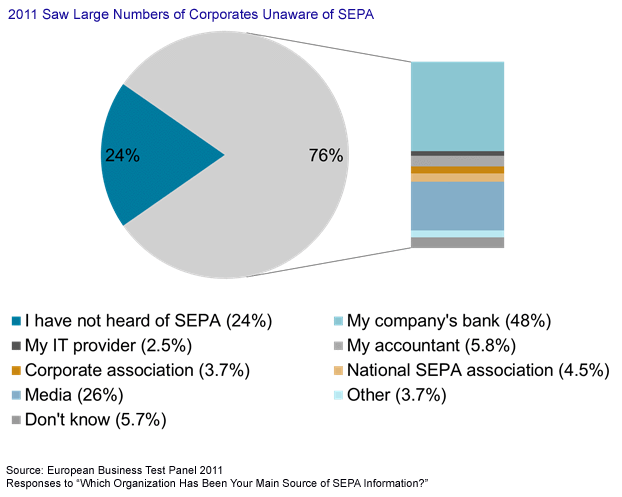Banks have been working on the Single Euro Payments Area (SEPA) for over a decade, and the finish line is in sight. However, Celent believes that a significant number of businesses will miss the deadline. Migration is currently 40% of total volumes, and by deadline day, only 94% of volumes will have migrated.
SEPA has largely been a bank project, with little involvement from corporates. The migration to SEPA is mandatory for nearly all corporates in European countries by February 1, 2014. Yet, according to a number of reports, many corporates haven’t even heard of SEPA, let alone are finishing their migration. This is a significant issue for banks.
In the report SEPA Migration: Making the Best of a Bad Situation, Celent estimates the state of readiness for corporates, using prior experience from other industry migrations. For corporates, the time to act has passed. The choice of how to become SEPA-compliant has now become “What is the quickest way to become compliant?” and “How do we limit the potential negative consequences?” Harnessing SEPA will have to become a secondary process. Many corporates believe they are ready and compliant, but only time will tell whether that is true.

“SEPA migration is no simple undertaking,” says Gareth Lodge, Senior Analyst with Celent’s Banking Group and author of the report. “For banks, the next six months are going to be very intense. This is unchartered water for all and, while banks cannot force corporates to comply, they are, in effect, on the hookfor corporates’ actions.”
This report forecasts what percentage of corporates are likely to meet the migration deadline. Corporates see SEPA as a bank initiative, but both banks and corporates could suffer financial fines and jail terms for non-compliance. The report looks at two other industry-level migrations to see what lessons can be learned, and highlights a number of areas where banks can assist.






